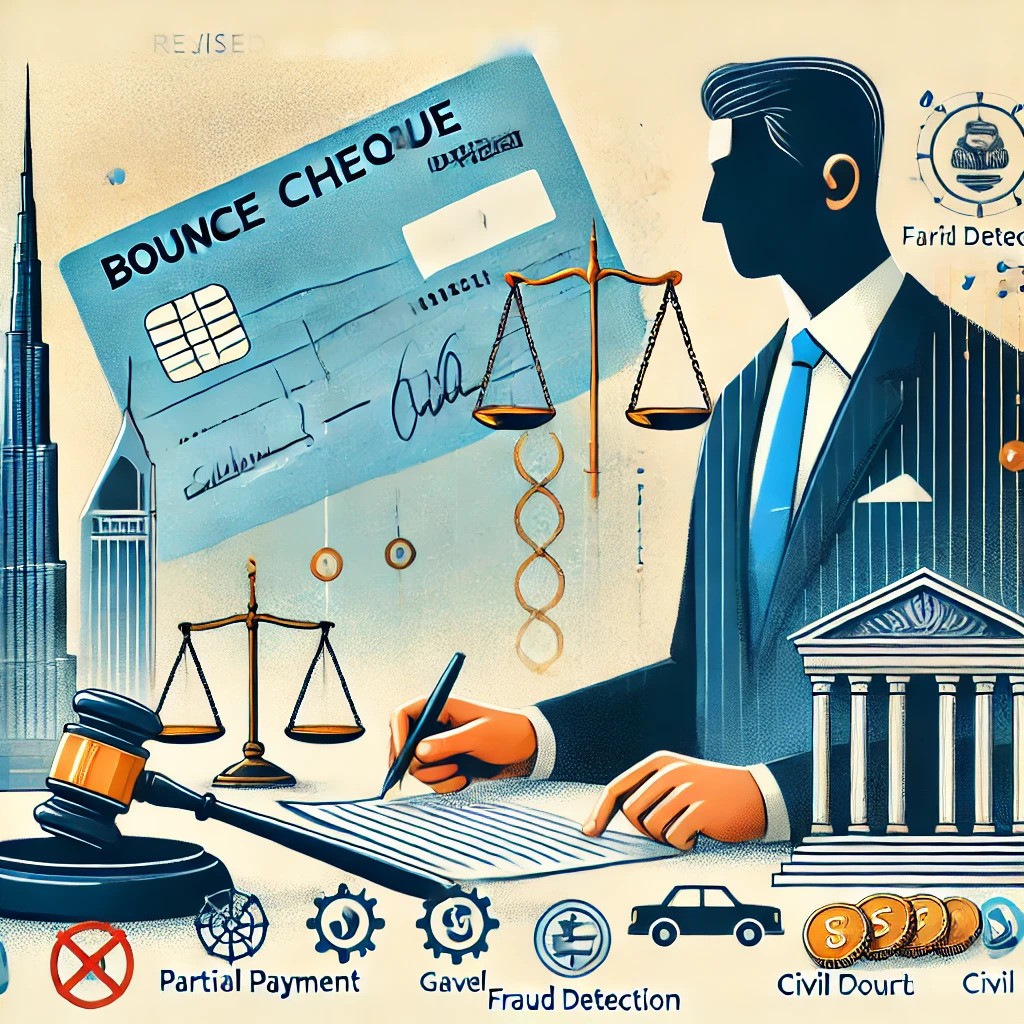Cheques have traditionally been the primary means of financial transactions in the UAE. However, bounced checks have become a regular problem, resulting in serious legal ramifications for both individuals and organizations. Recent adjustments to UAE legislation regarding bounced cheques have resulted in significant changes, changing the legal framework and redefining their relationship to criminal law.
Key Legal Updates on Bounced Cheques
The amendments under Federal Decree-Law No. 14 of 2020, effective January 2, 2022, have transformed the handling of bounced cheque cases. The key changes include:
- Decriminalization of Bounced Cheques: In most cases, issuing a bounced cheque is no longer a criminal offence. Instead, it is treated as a civil matter, significantly reducing the stigma and penalties for cheque issuers.
- Exceptions to Decriminalization: Criminal charges may still apply in specific cases, such as:
- Cheques issued with fraudulent intent.
- Falsification of cheques.
- Issuing cheques from closed or non-existent accounts.
- Partial Payment Enforcement: The law allows partial payment of the cheque amount if the account balance covers only part of the amount. Banks are now mandated to honour the available balance and provide a certificate for the unpaid portion, facilitating civil claims.
Criminal Law Implications
While decriminalization represents a progressive step, it does not entirely sever the link between bounced cheques and criminal law. Key considerations include:
- Fraudulent Behavior: Criminal charges still apply for actions deemed fraudulent, such as issuing cheques with the knowledge of insufficient funds or with the intent to defraud the recipient.
- Deterrent Measures: The law retains criminal penalties to deter misuse and uphold financial integrity in the UAE’s economy.
Civil Remedies for Bounced Cheques
The new regulations emphasize civil remedies over criminal penalties. Recipients of bounced cheques can:
- File a civil case for the unpaid amount.
- Utilize fast-track judicial processes for cheque-related disputes, which streamline resolution and recovery.
Preventive Measures and Compliance
To avoid the legal consequences of bounced cheques, individuals and businesses should:
- Maintain Sufficient Funds: Ensure the account has adequate funds before issuing cheques.
- Monitor Cheque Usage: Keep track of issued cheques and reconcile accounts regularly.
- Seek Legal Advice: Consult legal experts for advice on cheque issuance and dispute resolution.
Why Legal Assistance Is Crucial
The evolving laws on bounced cheques require careful navigation, especially when criminal implications arise. Legal professionals can provide:
- Guidance on compliance with cheque regulations.
- Representation in civil or criminal cases related to bounced cheques.
- Assistance in mitigating risks and resolving disputes efficiently.
Conclusion
The UAE's amended bounce cheque rules take a balanced approach, promoting economic stability while lessening the burden of criminal sanctions. However, the prospect of criminal charges in fraudulent cases emphasizes the significance of prudent cheque issuance and legal awareness.
If you are dealing with bounced cheques or need clarification on updated laws, our expert legal team is available to help. Contact us for expert advice specific to your situation.
